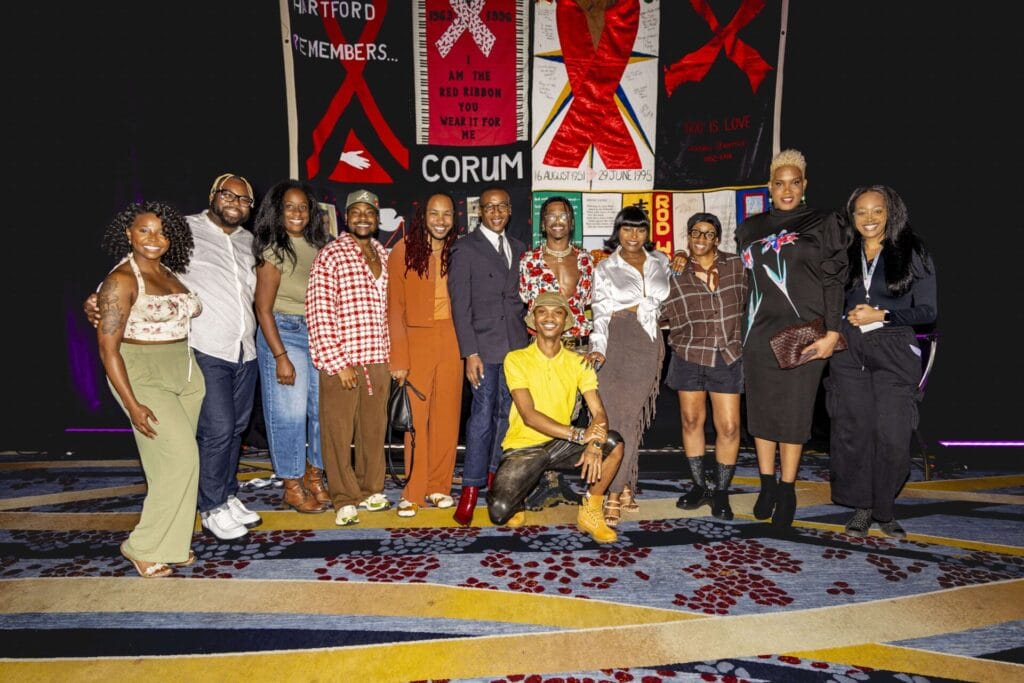At the 2025 United States Conference on HIV/AIDS (USCHA), Black queer and allied voices, stories, and leadership took center stage in Washington, D.C. This year’s convening reflected not only the urgency of addressing HIV within Black communities, but also the importance of uplifting Black queer people who continue to lead in advocacy, creativity, and community care.
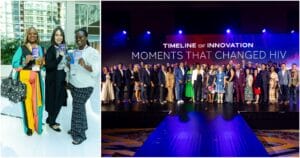
This year USCHA’s theme was Aging with HIV as an emphasis on how important it is to highlight people not only living with HIV, but continuing to thrive with it. Throughout plenaries, workshops, and networking spaces, Black queer leaders emphasized the need to reframe HIV justice through an intersectional lens. From highlighting the disproportionate impact of HIV on Black women to advocating for expanded access to prevention and care, speakers reminded attendees that solutions must be rooted in the lived realities of Black queer communities.
View this post on Instagram
GLAAD’s Communities of Color and Media teams helped anchor that visibility, collaborating with partners to ensure the stories and strategies of Black queer advocates were uplifted. Sessions centered storytelling, media representation, and community-driven solutions, underscoring that narratives shape both stigma and possibility. One being GLAAD’s very own session Listen Up: How Music Artists Can Help Shape HIV Prevention and Storytelling. Moderated by Damon Epps, and featuring EMEI Year 2 panelists and music artists: Damez, Asiahn, 2AM Ricky, Neverending Nina, Siaira Shawn, and Victor Jackson and Year 1 cohort member, Riley Wlson– GLAAD held the conversation of the importance of us countering the lack of HIV storytelling in the media. The session consisted of a special screening of the EMEI Year 2 documentary showcasing the cohort’s journey, how they’re music changed and reflected their lives, and why using their art for HIV and health equity is a method of opening minds within advocacy. And with a packed out room, the session was a highlight for many.
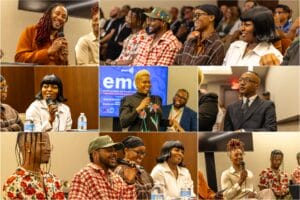
But the EMEI cohort weren’t there just for GLAAD, but also because of a partnership with NMAC and their PrEP for Me Campaign. A campaign focused on the conversation of HIV and its effects on Black and Latina women and trans women. Three of our cohort members, Asiahn, Siaira Shawn, and Neverending Nina participated as ambassadors in the campaign spotlighting sessions and conversations focused on the unique nuances of Black and Latina women and HIV. One session included a session named, From Silence to Strength: Latinas and Black Women with HIV led by Ella Silveyra, Rhea Van Brokin, and Citlalin Lopez-Torres. THis Confessions podcast-based workshop explored the overlooked voices of women aging with HIV, Using the podcast, Confessions: HIV Positive Women, a bilingual series centering women’s lived experiences, narratives of women navigating long term relationships, late diagnoses, and stigma. The room was divided into three groups where participants listened to an episode hearing the story of a Black or Latina woman and their story of living and living well with HIV. The episodes touched on both the joy and the struggles from their HIV diagnosis, but even more importantly, who they were as a person.
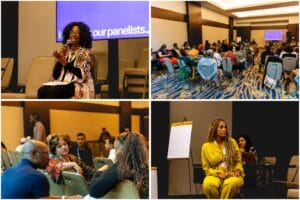
Kicking off the weekend, Congresswoman Maxine Waters welcomed attendees to light a fire under advocates despite federal rollbacks and budget cuts. She served as a reminder to write our own narratives and to remember how far we come. And in response, Congresswoman Waters announced her introduction of two new pieces of HIV legislation. One being The HIV Prevention Now Act that will place 2.16 billion dollars this fiscal year towards HIV advocacy and the PrEP and PEP of Prevention Act that will require these resources to have no out of pocket charge from individuals.
View this post on Instagram
Luncheon plenary sessions welcomed voices from Earvin “Magic” and Cookie Johnson, Beverly Ross, Rae Lewis Thornton, Louis Ortiz-Fronseca, Kia LaBeija, and more. Together, they traced the progress of HIV prevention, treatment, and community responses, offering a vision for the road ahead while grounding attendees in the legacies of resilience and survival.
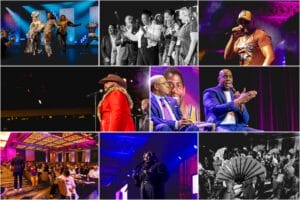
Black and Black queer leaders, artists, and advocates not only demanded visibility but also demonstrated the transformative power of storytelling, art, and policy change in dismantling stigma and building a healthier, more equitable future.
GLAAD is proud to amplify these voices and will continue building platforms where Black queer communities can thrive. As we look forward, the conference was both a celebration of how far we’ve come and a call to action for the work ahead. HIV justice cannot be achieved without the brilliance, resilience, and leadership of Black queer people—and this year’s USCHA was proof that our stories are not just part of the movement, but central to it.

